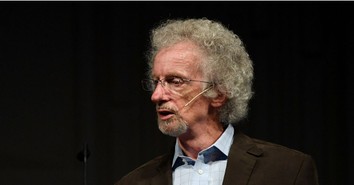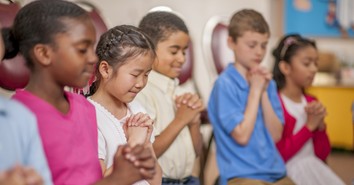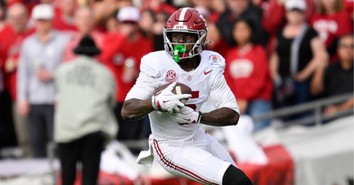Indigenous Communities Push for Political Power in the 2024 Presidential Election
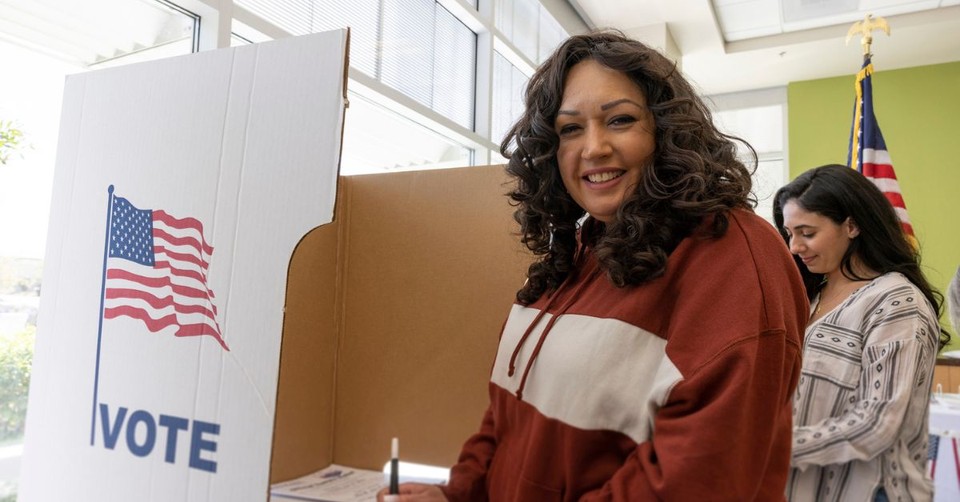
There's been a lot of talk about the battle for swing states lately. Seven states in particular have been in the spotlight: Arizona, Georgia, Michigan, Nevada, Pennsylvania, North Carolina, and Wisconsin. It's believed by many election analysts that these states will be the tipping point for who will win the 2024 presidential election.
Indigenous Peoples Can Influence the Direction of US
One minority group that has the potential for a great deal of pull in these swing states is the Indigenous community. There are 1,000,000 Native Americans who are eligible to vote in the United States, and only 66 percent of them go out and vote, according to a report released by The Native American Rights Fund.
There are multiple reasons why some Indigenous people choose not to vote. A couple of the top reasons are that they prefer to only concern themselves with their tribal or local elections, and/or they don't like either presidential condentor, according to ITC News. It's also a common belief that they feel the US system wasn't designed with them in mind.
Top Concerns of Indigenous Voters
Many Indigenous people feel that Washington has very little interest, if any, in addressing the things that concern their community.
"This is the United States, and Natives live like in a third-world country," Geraldine Buck, a Navajo citizen living on a reservation in Arizona, told ITC News. "Give them more opportunities to better themselves to come up with technology and stuff. Like we're down here, and we need to come up to their level."
Navajo Marie Saunders is concerned about violence against Indigenous women that can be so extreme that they're murdered. In other instances, Indigenous girls and women are abducted and never found.
"We need help to organize organizations, or the law [needs] to at least help find these missing Natives," she said.
Other top concerns Indigenous people have include schooling, the economy, inflation, and immigration.
There have also been challenges in which the voting rights of some Indigenous people have been obstructed, even though they have had that right for 100 years under the Indian Citizenship Act, according to LA Times.
Indigenous Activists Persuade Their People to Vote
Allie Redhorse Young has headed up a grassroots effort in the state of Arizona to encourage Indigenous people to get out and vote.
"If there's anything I know about our Native young people, it's our deep, deep reverence for our elders, our ancestors, and our history," Young told LA Times.
The 34-year-old activist rode her horse, Lady Knight, on a six-day trail ride across Navajo Nation to register people to vote.
One of many values that the Indigenous elders impress on the younger generation is, "Our actions today will impact the next seven generations."
When Young gets pushback about voting from some of the younger generations she encounters who feel the system in the US "is not a system that was designed for us," she'll agree with that. But she also reminds them to remember the future generations.
"If you want to think about [voting] as a sacrifice, think about it that way. Our ancestors also had to make sacrifices. I know they didn't want to sign those treaties, but our people were dying, and their agenda was to exterminate us and to starve us out, and so our ancestors had to make those sacrifices and sign those treaties, even if they didn't want to."
Another group in the tri-state area of Ohio, Northern Kentucky, and Indiana views voting as a way to empower their tribes. They created a campaign dubbed "Sovereignty in Action."
According to their website, their mission is to "make voting more accessible and uphold the sovereignty of Tribal Nations in the political process."
Some Native Americans have taken this to the level of running for office. For example, 161 Native Americans ran for governmental office in 2022, according to Advance Native Political Leadership.
There's an extremely high rate of hopelessness, poverty, and suicide among young Indigenous people on reservations, according to Voices of Native Youth.
One Christian Organization that focuses on bringing Native Americans relief from hopelessness is Ron Hutchcraft's On Eagles' Wings Ministries. Ministry workers train Native American youth who are Christians to go into their communities and talk to their people on the reservation about Christ, how He is our hope and has plans and a purpose for those who choose to be in a relationship with Him.
Photo Credit: ©Getty Images/LPETTET
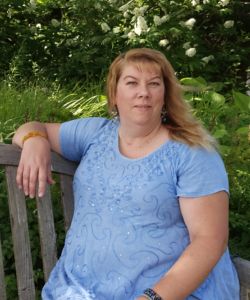
Originally published October 12, 2024.


